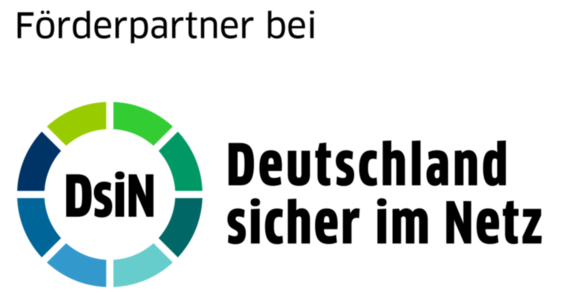Security risks of structurally copyright-infringing websites
According to the CUII Code of Conduct, only clear cases of copyright infringing websites may be blocked. Such platforms specifically aim their services at facilitating the infringement of copyright-protected works. These are also referred to as structurally copyright-infringing websites.
When users visit such websites, they are exposing themselves to considerable risks.
The websites operate under an illegal business model that is punishable by law. This means that the websites not only infringe copyright, they also disregard other laws intended to protect users. Above all, data protection is a concept totally alien to such sites!
One particular danger is that many illegal websites contain malware, i.e. harmful software. The malware can, for example, be disguised as advertising, known as malvertising. If users click on the infected adverts, the malware is installed via executed scripts. The links in the adverts can also redirect to malicious websites. This not only allows malicious programmes to be installed on the user's device but also allows sensitive data such as bank details to be accessed, misused or sold. There is also a risk that malware infections will not only install malware on the user's device but also target connected networks, such as a company network.
In addition, such websites read cookies and browser histories, for example, and can sell the data obtained in this way to third parties.
You can find information on legal alternatives under the heading Information on legal content.
Deutschland sicher im Netz
The website of Deutschland sicher im Netz e.V. (DsiN) (German internet security initiative) provides further information on the topic of online safety, such as the DsiN digital driving licence or the "Digital Education meets Schools" (DigiBitS) programme:
The DsiN digital driving licence (DiFü) from the Deutschland sicher im Netz association provides information about the IT security risks and provides tips for security practice in private and professional contexts. The skills acquired in the DiFü learning centre can also be certified. In addition, DiFü-News provides you with the article "Copyright on the Internet: What's allowed, what's not?" for an overview of the legally compliant use of digital media.
With the DiFü for teachers, educational staff at schools can also find helpful tips on the legally compliant use of digital media in teaching contexts, from primary school to professional school. On the website of the DsiN project "Digital Education Meets School" (DigiBitS), teachers can choose from over 50 teaching materials to digitise their subject lessons safely and confidently and talk to young people about security risks online. More than 600 additional materials can be researched in the DigiBitS material pool.
The CUII supports the initiatives of Deutschland sicher im Netz e.V. and has been a funding partner since 2024.

